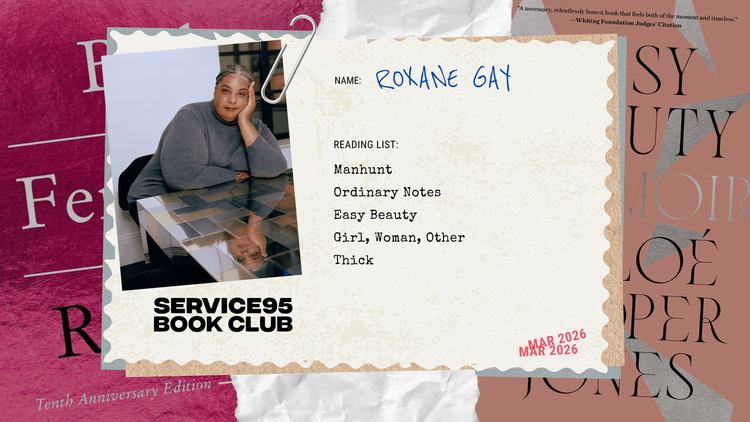Like all bad habits, this one starts small. A harmless scroll through someone’s Instagram grid. A quick glance at their tagged photos. Suddenly, you’re on their LinkedIn page. You find their company website. Their GCSE results. The Thai orphanage they once volunteered at. Before you know it, you’re enjoying a teeny tiny tap through their sister-in-law’s Facebook profile that hasn’t been updated since 2008. Normal stuff. Except it isn’t, really, unless you’re applying for a job at MI6.
Social media stalking is obsessive by nature, a natural byproduct of our hyper-digital landscape, where everyone is rewarded for behaving like the star of their own reality TV show. It’s a fixation all of us have to a degree. But it’s also one that can easily slip into toxicity, particularly if the person you’re stalking is going out with your ex. This is the central premise of Too Much, Lena Dunham’s highly anticipated new 10-part series for Netflix (out 10 July), which follows a New Yorker in her mid-thirties who, while reeling from a sudden breakup, makes the impulsive decision to start anew in London.
Each episode begins with our protagonist Jessica (played by Megan Salter) having an imaginary conversation with her ex-boyfriend’s new girlfriend, Wendy (Emily Ratajkowski), a model-slash-influencer who quite literally consumes Jessica’s every waking thought. It doesn’t help, of course, that so much of her life is accessible online; a video of her ex proposing to Wendy is rewatched – and screeched at in between tears – repeatedly, among many (many!) others.
It’s something I watched with an all-too-familiar discomfort. I’ve been in Jessica’s position many times, losing hours to the Instagram accounts of women I’ve never met, purely because they happen to be going out with someone I once dated. It doesn’t even need to be a serious ex – sometimes the fixation revolves around a guy I went on a handful of dates with. (Like the filmmaker from Bumble I dated for a few weeks in 2018; sometimes I still peruse his girlfriend’s Instagram account, even though I’m not sure they’re together anymore. Last week, she was on holiday in Venice.)
Time and depth of relationship aside, though, the bottom line is always the same: if they’re going out with someone I had some sort of encounter with, I need to know everything I can about them. This is despite the fact that it almost always leaves me feeling terrible about myself, caught up in a mix of shame, self-pity and general malaise that these women must have something I don’t. I’m not even sure what it is I’m looking for. Reassurance that I wasn’t the right person for that ex? Confirmation of my own worst feelings about myself? Or just morbid curiosity keeping me hopelessly trapped in the graves of dead relationships? Perhaps it’s all three.
“The bottom line is always the same: if they’re going out with someone I had some sort of encounter with, I need to know everything I can about them”
What I do with the information depends on a few things, namely how emotionally stable I’m feeling, how much therapy I’ve had at that time and, sometimes, what the moon is doing. If things are looking good, it’s a case of curiosity and nothing more. If they aren’t, though, that intel becomes a weapon of the highest kind for self-sabotage. I’ll pore over every detail and delve into some sadistic compare and contrast exercise. My career versus theirs. My body versus theirs. The shape of my toenails versus theirs. And so on. There truly are no limits. The only respite: I’m far from the only one behaving this way.
“This often stems from insecurity and fear of comparison,” explains Rachel Maclynn, chartered member of the British Psychological Society and founder of international dating agency, Maclynn. “We want reassurance that we’re ‘better’, or at least not ‘worse’. It’s also a control mechanism, like gathering intel on the past to anticipate future issues.” For those in the throes of a breakup, it might even be a way of reframing how that relationship ended. “It can be like trying to ‘reverse engineer’ what went wrong in the previous relationship so they can avoid repeating mistakes,” she adds. “There’s also a deeper, often unspoken motivation: we want to know how lovable we are, relative to someone who was once loved.”

Those with anxious attachment styles can be especially vulnerable to this kind of obsessive thinking as they’re wired to fixate on even the tiniest signs of rejection. Often, this is a coping mechanism: anxious attachers use this comparison as evidence of their own romantic shortcomings, using them to subconsciously anticipate the reasons why someone might abandon them. Combine this with the deluge of information we can uncover on social media and it’s an almost irresistible cocktail for self-sabotage. It doesn’t even matter if the ex was significant or not – if your self-worth is low enough, anything can be an excuse to batter it down even lower.
“Some people also internalise breakups as a personal failure, and therefore the urge to deep dive into the life of an ex’s new partner can stem from a need to rationalise why the relationship ended and what that might say about their own worth,” says Rachel. However, you know you’ve tipped from curiosity into obsession when it starts to have an emotional impact: “Mentally replaying or dissecting your ex’s new life through compulsive social media scrolling can be akin to emotional self-harm,” she adds. “It keeps emotional wounds fresh, delays healing and often leads to distorted self-perception.”
“Mentally replaying or dissecting your ex’s new life through compulsive social media scrolling can be akin to emotional self-harm. It keeps emotional wounds fresh, delays healing and often leads to distorted self-perception”
Once you’re in that headspace, though, the urge to keep checking can feel impossible to resist – even if you know it’s making you feel worse. That’s when people start finding ways to lurk without leaving a trace. Enter: the burner account. A ghost profile made purely for scrolling in peace. One of my friends has an app that allows her to view the Instagram Stories of people with private accounts that she uses exclusively to keep tabs on the girlfriends of exes, sometimes stretching back as far as a decade ago. “I’ve followed ex’s new partners off of different accounts in the past,” admits Bea*. “I always just became obsessed with them and couldn’t help it.” The same obsession spawns from new partner’s exes, too. Maya* spent weeks social media stalking one of her new boyfriend’s flings from the past. “She lived in a different country and he didn’t really have a reason for why it ended,” she says. “So I wanted to find her and assess whether he would reconsider if she moved to England,” she says.
This behaviour almost always happens in secret – like admitting to the depth of our obsession would somehow make it worse. But the silence only intensifies it, fuelling isolation and keeping us stuck in a shame spiral, hating ourselves one Insta Story at a time. Still, sometimes the cycle can be interrupted early. “I just muted the ex of the guy I’ve started seeing,” says Joe*. “I already knew him and just thought I’d get ahead of things so that I don’t need to think about the ex at times when I otherwise wouldn’t. It’s a way of taking care of myself.”
It’s difficult to ascertain what exactly drives this kind of behaviour, particularly because it tends to be entirely one-sided. I can’t imagine any of the women I’ve fawned over have ever given me a second thought, particularly if they’re dating men I barely even knew myself. And yet, it’s strangely addictive, as if I’m using them to confirm any biases I’ve held against myself. As for what differentiates this from humble curiosity, it’s the degree to which the social media stalking takes over. It’s not a simple scroll from time to time. I’m talking about hour-long deep dives that take you right through someone’s Instagram feed, as well as those of their friends and family members.
“It’s ultimately centred around comparison and validation,” confirms Rachel. “Many people are socially conditioned to view themselves through the lens of relational success. Therefore, there’s a subconscious desire to assess how they ‘measure up’.” This can be physically, intellectually and professionally. “And in an age of hyper-visibility via social media, these comparisons can become compulsive, especially when we haven’t fully processed the breakup.
In these moments, the urge to stalk can feel like a search for answers – a way to make sense of what went wrong. Rachel explains that it often stems from a desire for closure, as if learning more about someone’s new partner might explain why the relationship ended. “But often it’s more about a loss of narrative control,” she says. “When a relationship ends abruptly, the story can feel incomplete. Looking into an ex’s new partner can be a way of subconsciously trying to ‘complete the puzzle’.”
Sometimes, it’s also about what Rachel calls “identity disruption” – the instinct to re-anchor your sense of self by studying the person who replaced you, or the one who came before. Even if it’s ultimately unhelpful. There’s little formal research on this behaviour, but culturally, it’s not hard to see why women might be more prone to it. Internalised misogyny – and a lifetime of being pitted against one another –creates the perfect storm. “One of my clients became so consumed with her ex’s new girlfriend’s Instagram that she began mimicking her style and interests,” says Rachel. “It created a profound identity crisis and only deepened her heartbreak.”
In Jessica’s case, the effect is similar: her stalking of Wendy serves only to keep her trapped in the past of her relationship’s failure. The best way to overcome this? Well, first you need to tackle the shame. “Show yourself some compassion,” says Rachel. “This behaviour is common and human, especially when you’re vulnerable. But healing starts with setting boundaries with yourself.” Some easy ways to do this might include outlining some rules: “Like no profile-checking after 9pm, or unfollowing accounts that trigger you,” she adds. It’s also important to be brutally honest with yourself. “Ask yourself, do you feel worse after each time you look?” says Rachel. “Are you fantasising or catastrophising based on limited information? Are you neglecting your own healing or new relationship because you’re stuck in this digital loop?” If the answer is yes, well, it’s time to put the phone down.
“Ask yourself, do you feel worse after each time you look? Are you neglecting your own healing or new relationship because you’re stuck in this digital loop?”
There are also plenty of healthier habits you can start to reintroduce. “Replace the behaviour with something grounding: journaling, therapy or simply reaching out to friends,” says Rachel. And most importantly, focus on reinvesting energy into your own story. “The healthiest relationships don’t come from obsessing over the past, but from intentionally building the future. This could be achieved through carefully planned online dating, expert date coaching with a psychologist, or personal matchmaking.”
These days, I’ve realised my compulsion to check up on an ex’s partner only ever shows up when I’m feeling low. It’s a form of self-harm, really – one I try not to indulge. That said, just last week I found myself three years deep into a stranger’s Instagram feed, simply because I discovered she once dated someone I was with a decade ago. Turns out, overcoming the urge goes far beyond just deleting Instagram (believe me, I’ve tried). It’s about looking inward and asking what part of yourself you’re actually trying to heal. Sure, it might seem like it’s about your ex. But, more often than not – as with Jessica, and always with me – it’s really about your relationship with yourself. And that’s the one that deserves the most attention.
*Names have been changed












